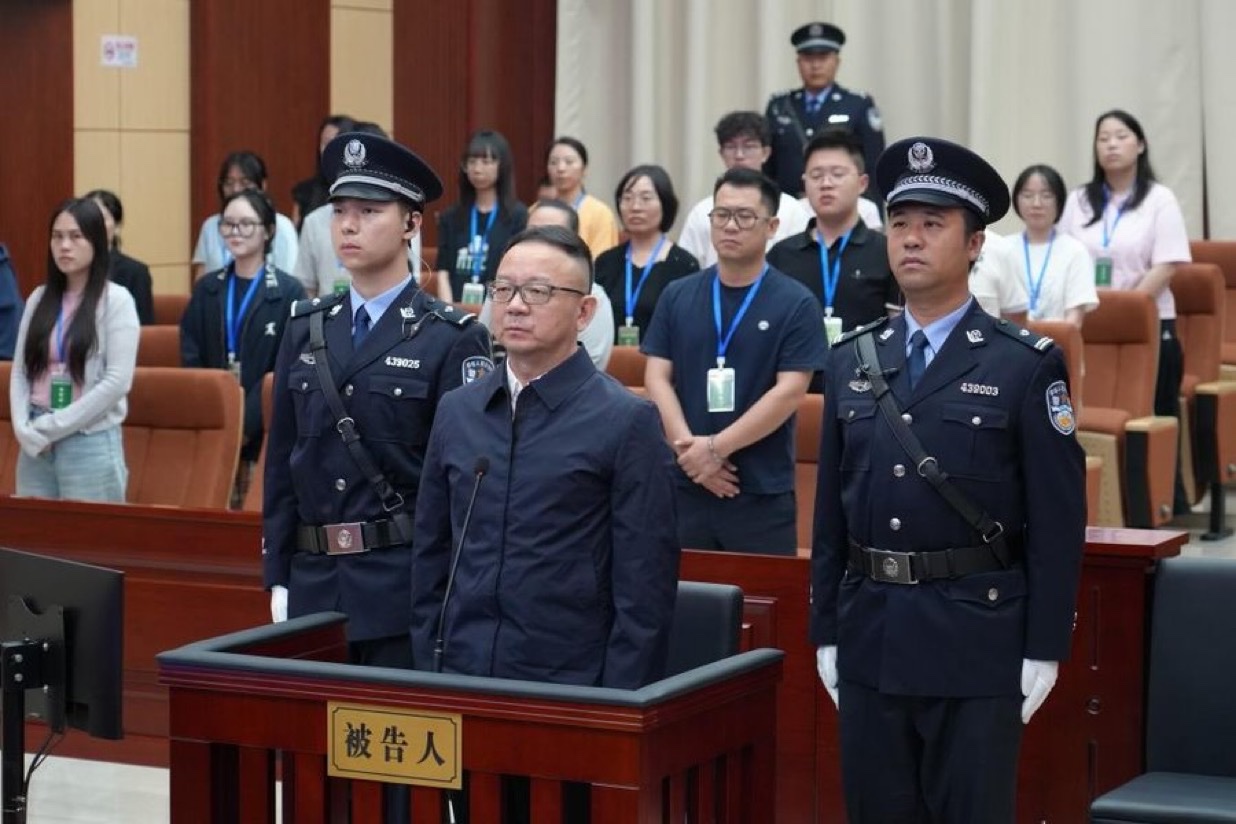
Death Sentence Drama: Chinese Politician Wang Yong Falls in $37.8 Million Bribery Earthquake

In a ruling that has sent shockwaves through the corridors of power in Beijing and beyond, Chinese politician Wang Yong has been sentenced to death—with a suspended execution—for accepting bribes totalling a staggering $37.8 million.
The former vice-chairman of the Tibet Autonomous Region's government was found guilty of one of the most egregious corruption cases in recent Chinese history, a case that perfectly captures President Xi Jinping’s unrelenting war on graft, excess, and political rot within the Chinese Communist Party.
Wang’s case is not just another corruption story. It is a tale of unchecked power, influence sold like stock, and a man who rose through the ranks by allegedly bending the system to enrich himself while the nation watched unknowingly. Between 2007 and 2023, Wang exploited a wide range of positions, including senior roles in civil aviation and infrastructure management, to secure illicit contracts and manipulate promotions in exchange for bribes that ballooned to over 271 million yuan — roughly $37.8 million. This was no backdoor deal gone rogue. It was, according to court records, a sustained network of kickbacks, nepotism, and backroom power brokering that lasted for over 15 years.
His sentencing was handed down by the Intermediate People's Court in Changsha, Hunan Province. In its verdict, the court condemned Wang’s actions as “extremely serious,” stating that they had “caused great damage to the credibility of the state apparatus.” Yet, in a move typical of China’s legal system for high-ranking officials who cooperate, Wang’s death sentence came with a two-year reprieve — a suspended sentence that could be commuted to life imprisonment if he demonstrates good behavior behind bars.
The court noted that Wang had confessed voluntarily, expressed remorse, and returned a significant portion of his illicit wealth. But critics argue that remorse is often the last card played when all options have run dry. For many watching in China and across the world, the ruling is being interpreted as yet another performance in the grand theatre of political survival, justice, and control — where the state delivers both punishment and protection, depending on the message it wishes to send.
While the headlines scream of justice served, the deeper undertone here is of a country struggling to cleanse its inner circle without tearing it apart. President Xi Jinping’s anti-corruption drive has, over the last decade, taken down thousands of officials — from village leaders to national heavyweights. But this case stands out for its sheer scale and the symbol it now represents: a fall from grace so steep, it ended with death hanging by a thread.
What makes this case even more jarring is Wang Yong’s previous reputation as a disciplined, silent bureaucrat. Unlike the flamboyant corrupt figures of earlier scandals, Wang kept a relatively low profile. There were no mansions flaunted on Weibo, no sports cars, no designer-wrapped mistresses — just quiet, calculated graft. His ability to siphon millions without widespread detection has raised fresh concerns about the efficiency of China’s internal checks and the blind spots that still exist within the CCP’s own house.
The ruling also puts the spotlight back on the suspended death sentence policy — a unique Chinese judicial mechanism. Under this system, convicts are sentenced to death, but the sentence is postponed for two years. If the convict behaves, shows “true repentance,” and avoids further crimes, the sentence is usually commuted to life in prison. Critics see it as a clever way to avoid international backlash over human rights, while still delivering the image of absolute power and retribution.
Public reaction inside China has been predictably muted, given the country's tight grip on media and speech. However, the state media has been loud and clear — Wang Yong is being used as an example. An example of what happens when loyalty turns into greed, and when one man's ambition threatens to corrode the machinery of a government trying to rebrand itself as clean and futuristic.
Outside China, the case is being closely watched. It feeds into growing narratives about how far China’s leadership is willing to go to maintain political order, discipline, and control over public perception. In an era where Chinese soft power is expanding globally, Beijing cannot afford to look soft on internal rot.
Wang Yong’s fall from the heights of regional government to the brink of state execution serves as a chilling reminder of the double-edged sword that is power in authoritarian regimes. It can lift you into untouchable circles — or drop you into a cell where your fate rests not in law, but in politics.
In the end, what this story proves is simple but brutal: in China, the hand that feeds the system can also be the first to be chopped off when it bites too hard.
Justice, in Xi’s China, comes fast — but it also comes with a message etched in stone: betray the Party, and the Party buries you.


